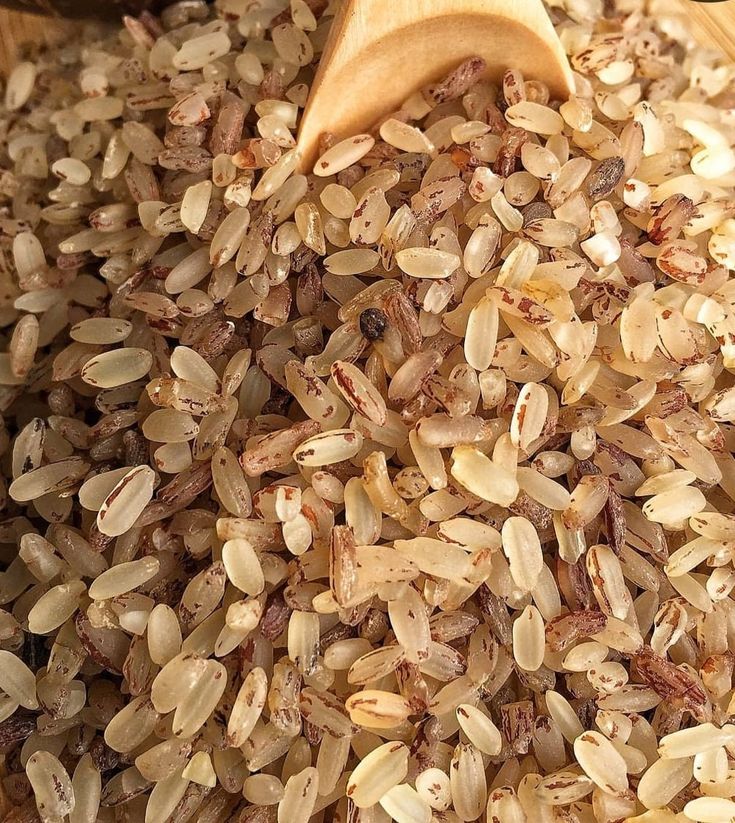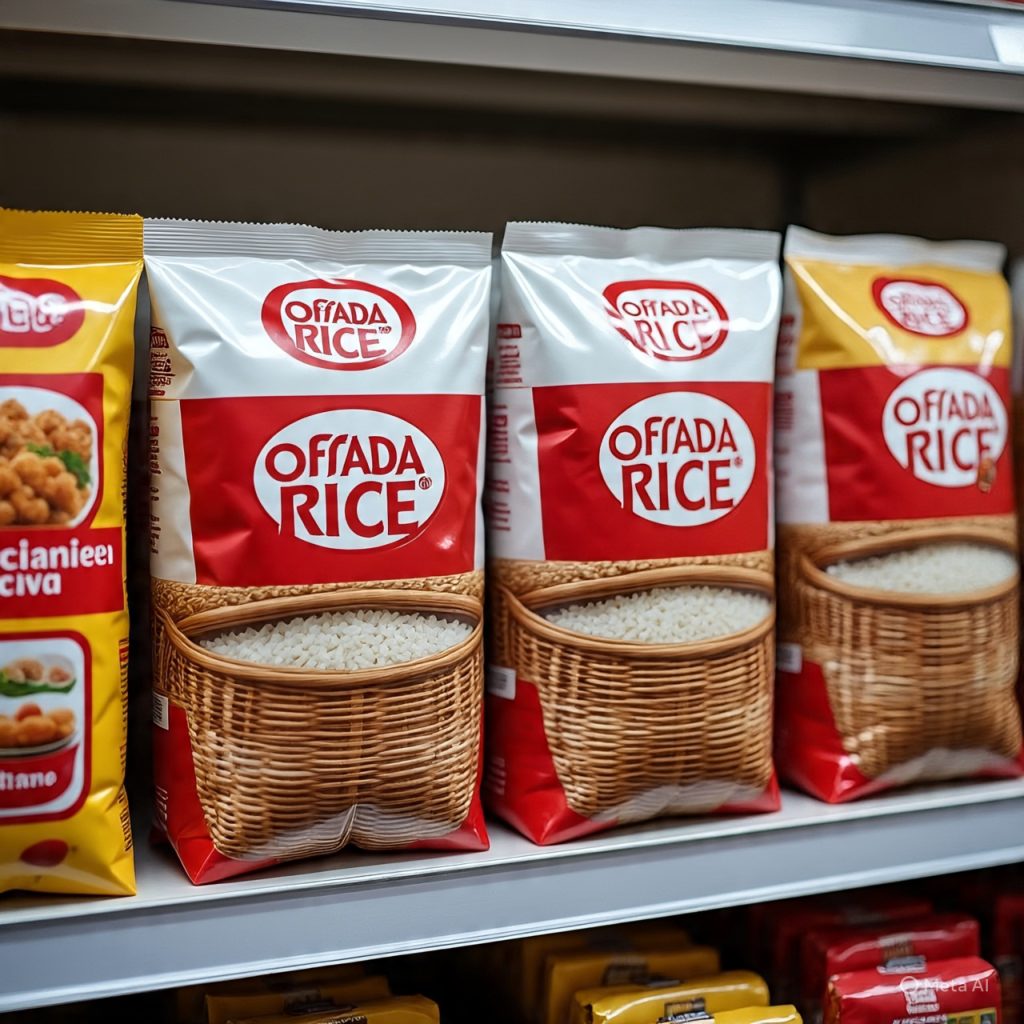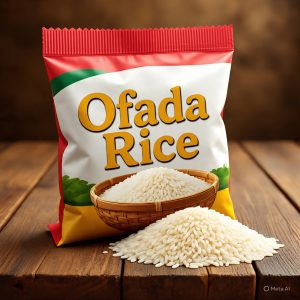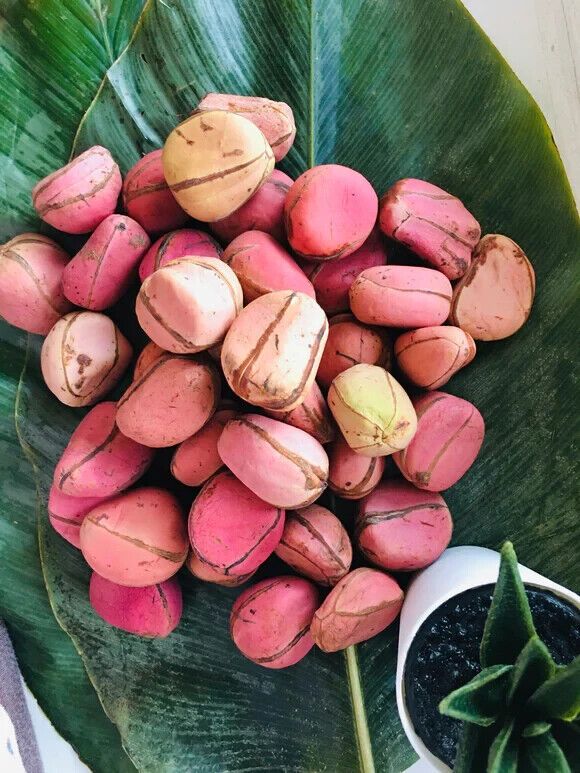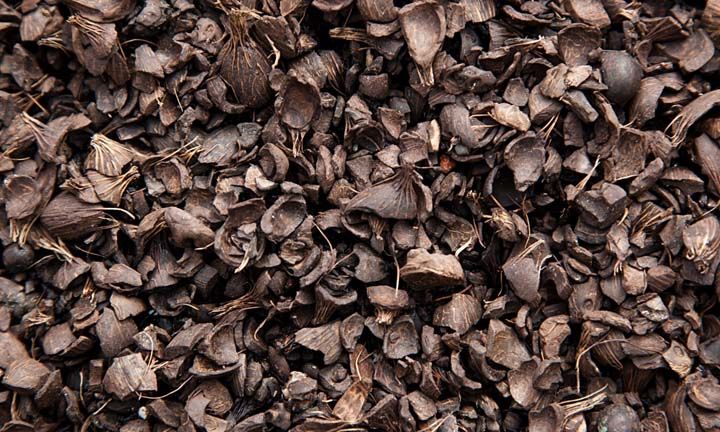What it is
Ofada rice is a popular indigenous rice variety grown in the South-Western region of Nigeria, particularly in Ogun State. Unlike the polished white rice varieties commonly imported, Ofada rice is unpolished, short-grain, and has a unique aroma and slightly nutty flavor. It is traditionally served with Ofada stew (Ayamase), making it a cultural and culinary staple in Nigeria.
Its brownish hue comes from the fact that it is semi-milled or sometimes unpolished, retaining much of its bran, fiber, and nutrients. Beyond its local significance, Ofada rice is gaining international demand due to the rising interest in organic, healthier, and indigenous food varieties.
Nutritional Value
Ofada rice is rich in nutrients compared to most imported polished rice:
-
High in Fiber – Supports digestion and gut health.
-
Rich in Magnesium & Phosphorus – Important for bone development and energy metabolism.
-
Contains Antioxidants – Beneficial compounds for immunity and disease prevention.
-
Vitamin B Complex – Essential for brain health and metabolism.
-
Low Glycemic Index – Helps regulate blood sugar, making it suitable for diabetics.
Uses of Ofada Rice
-
Food Preparation:
-
Cooked plain and paired with stews and sauces.
-
Traditionally served with spicy Ayamase (green pepper stew).
-
Can be used in porridge, jollof rice, or fried rice.
-
-
Health & Nutrition Industry:
-
Promoted as a healthy alternative to polished white rice in weight-loss and wellness diets.
-
Marketed as organic rice in health-conscious markets abroad.
-
-
Cultural Significance:
-
Commonly served at Yoruba parties, weddings, and festive occasions.
-
Symbol of heritage and pride among Nigerians in the diaspora.
-
Export Value
Nigeria’s Ofada rice is highly demanded in:
-
United Kingdom (UK) – Among the Nigerian and African communities.
-
United States & Canada – African grocery stores, restaurants, and health shops.
-
Europe (Germany, Netherlands, Ireland) – Diaspora-driven demand.
The increasing trend of buying local, unprocessed, and organic foods makes Ofada rice a niche export commodity with strong potential.
Packaging Specifications for Export
To meet international food safety and quality standards, Ofada rice should be well packaged:
Forms of Packaging
-
Whole Grain (Unpolished):
-
Packed in 5kg, 10kg, 25kg, and 50kg bags.
-
Vacuum-sealed packs (1kg – 5kg) for retail.
-
-
Polished/De-stoned Rice:
-
Specially processed and cleaned to remove stones and chaff.
-
Export-ready packs for supermarkets abroad.
-
Packaging Materials
-
Food-grade polypropylene woven sacks.
-
Laminated pouches with zip locks (retail size).
-
Branded packs with labels indicating nutritional content, country of origin, batch number, expiry date, and storage conditions.
Export Specifications
-
Moisture Content: 12% maximum.
-
Impurities (Stones, Chaff, Sand): < 1%.
-
Grain Length: Short-grain variety (distinct from long-grain imported rice).
-
Color: Brownish/whitish (depending on polishing).
-
Certification Required:
-
NAFDAC Certification (for Nigerian exporters).
-
SONCAP (Standards Organization of Nigeria Conformity Assessment Program).
-
Phytosanitary Certificate.
-
Health Certificate (for international shipment).
-
UK Market Demand
-
Ofada rice is highly sought after by Nigerian communities in the UK who crave the traditional taste.
-
Health-conscious consumers are increasingly demanding organic and indigenous rice varieties.
-
UK African grocery stores (e.g., in London, Birmingham, Manchester) stock Ofada rice in 2kg – 10kg packs.
-
UK wholesalers often prefer bulk shipments in 25kg – 50kg bags, which they later repackage under their brands.
HS Code
-
HS Code for Rice (Semi-milled/Unpolished): 1006.20.00
Challenges in Exporting Ofada Rice
-
Stones and impurities if not properly processed.
-
Moisture control to prevent mold or spoilage during shipping.
-
Competition with imported polished rice that is cheaper.
-
Strict UK food regulations requiring proper certification and packaging.
Business Opportunities
-
Exporters can brand Ofada rice as “Organic Nigerian Rice” to attract health-conscious buyers.
-
Supplying to UK-based Nigerian restaurants that cook Ofada rice for cultural events.
-
Partnering with African food stores in the UK to distribute retail packs.
-
Positioning as a premium product with storytelling on heritage and health benefits.
Summary: Ofada rice is not just a food item but a cultural and health product with rising demand in the UK and other international markets. With proper cleaning, de-stoning, packaging, and certification, it can become a highly profitable export commodity for Nigerian exporters.

